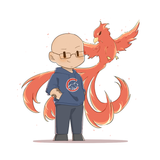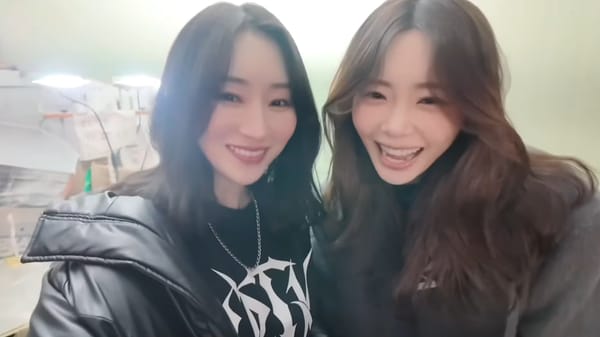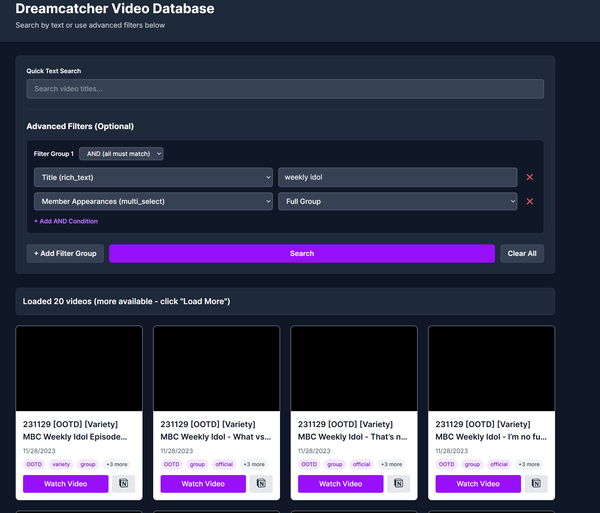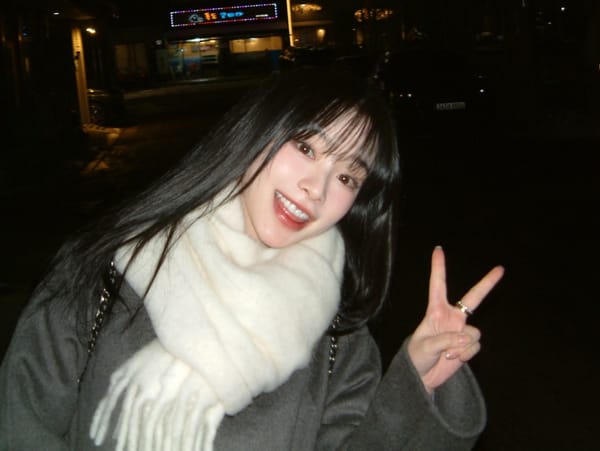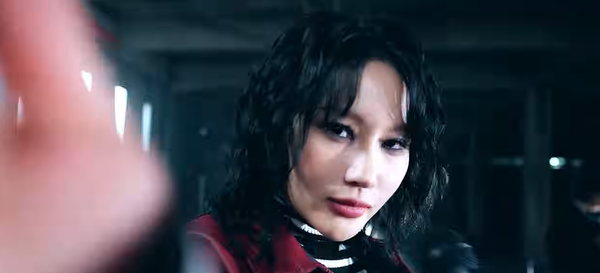The Dreamcatcher I Didn't See Is The K-Pop Group I'll Always Appreciate
Sometimes it's what isn't in front of the camera that makes you respect the outcome more.
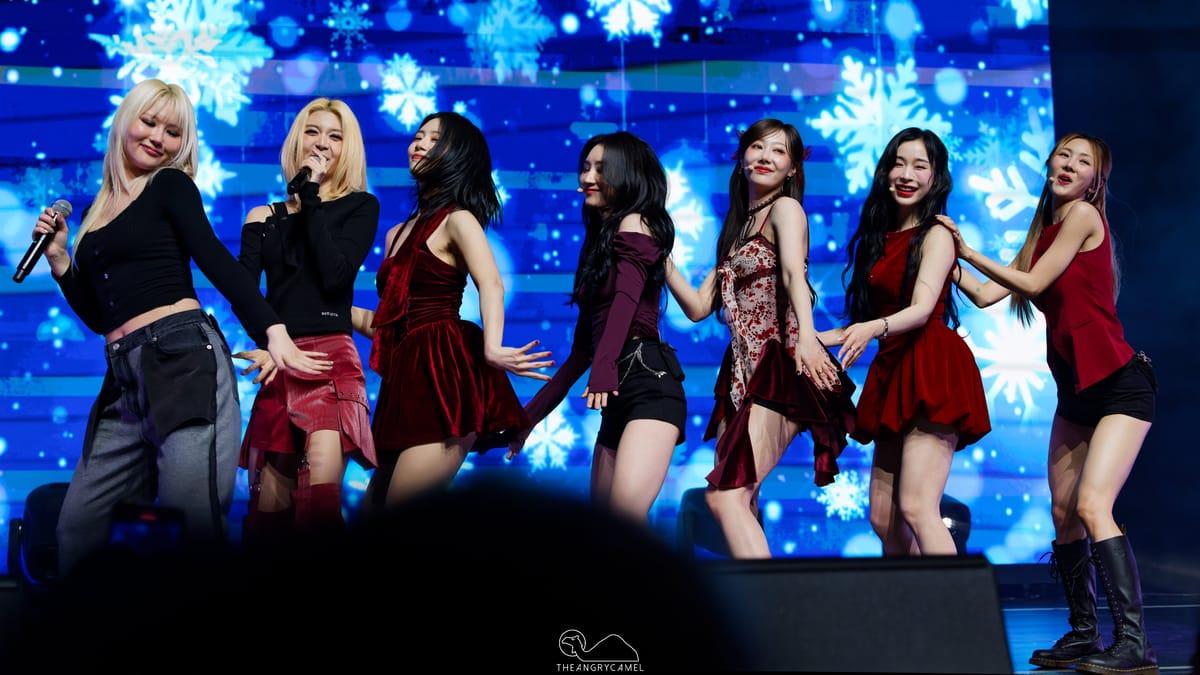
The year was April 2017, and I was bored with my music playlist.
I've always had somewhat eclectic taste. Now don't get me wrong - I am shamelessly into the catchy dance-pop of top 40 acts and always have been. Yet amid all the bubblegum pop is everything from symphonic metal to eurobeat to old synth, all with the overarching theme of "if it's catchy and it makes me head bop a bit, I'll like it".
That day, though, I was having trouble finding something I liked. My time in anime convention events (we'll get to that later, it's relevant, trust me) has meant that I ran the gamut of Asian pop for the better portion of a decade, and that eventually led me from J-Pop to K-Pop entering the 2010's. That was mostly BoA's fault, as her crossover market appeal from singing "Every Heart", one of the best ending themes of anime series InuYasha, led me back to her work in Korea, to electro-pop bop "Hurricane Venus", and the rest was history. I'd get drawn in by groups like SNSD and KARA, with hits like "Gee" and "Wanna" that I couldn't help but randomly sing the lyrics to, and darkly cool and badass groups like Infinite, who had "The Chaser" and "Back" with action-filled music videos.
On this particular day, however, nothing in K-Pop was clicking, so I was back to my J-Pop roots and to vocally talented symphonic pop group Kalafina. "To The Beginning", with its haunting melody and dark mood music video, served as an appropriate opening for the heavy drama that was the anime series "Fate: Zero", prequel to one of the most prolific and expansive anime franchises I've watched.
As I finished watching the video, a recommendation on YouTube came up that would change my K-Pop fan trajectory:
This looked a bit similar to what I'd just watched, and it certainly wasn't a group I was familiar with. My recent K-Pop recommendations were flooded with bright pastel colors and cutesy expressions from both boy and girl groups alike, and while I was fine with a little bit of that, maybe having too much of it lately was what was causing me to turn away from it for a bit.
"GOOD NIGHT" was anything but cutesy. It had just released a couple days ago, it had what looked to be a horror story theme, it featured dark styling and even darker, heavier music, and it had rock - a genre that always occupied parts of my playlists when I'd wanted something driving and in-your-face to increase my productivity.
I was intrigued. I probably played that video maybe 15 times on loop, which allowed me to fly through all the emails and work I had to do (productivity, check) and I spent my lunch hour looking up the group.
That hour, I think, was when I went from being intrigued to being hooked - but it might not be for the reasons you're thinking. Yeah, the music was great ("Chase Me" solidified for me that this was a group worth following but the "Emotion" special clip showed me they had ballad range, too). And sure, the group looked every bit as cool scowling and staring into the camera rather than being cheery and happy like most of the other groups I'd searched up lately and in some cases mistakenly judged ("TWICE? Who names a group that and has a song named "TT"? They'll never be that big", said my clown 2017 self).
Yet it was what they were not showing me that put me on the Dreamcatcher fandom path. What do I mean by that? It's essentially what seemed implied or apparent from what they did, rather than what they said. If that makes absolutely no sense, don't worry - I'll come back to it.
This wasn't just a group doing rock, it was a group doing a genre that was moved to the background by South Korea's pop music rise and was a calculated risk.
This wasn't just a group backed by a mildly-experienced company, it was one whose company wasn't major players JYP, YG, or SM, or even Cube or Woolim. It was a small company with an ironically funny name (Happyface) for the genre and concept they were selling.
This wasn't just a rookie 3rd generation group, it was a re-debuted group, one which tried (and failed) to make a splash being more in-line with the mainstream.
This group didn't just have two new members, one of which had only been in South Korea for a year and a half, but members who'd essentially been training for a fraction of the normal time K-Pop trainees do. And in Chinese-born Handong's case, she also had to juggle mastering the language enough to talk publicly while also continue to keep up with a culture and customs different than what she was raised with.
And finally, at this point, they didn't just finish promoting debut song "Chase Me", but they'd done so for almost 7 straight weeks - a grueling schedule when you consider music show schedules run every day except Monday. And they'd went right back to work with "GOOD NIGHT", releasing less than a month later to only a couple hundred thousand views in two days, when their peers were reaching millions in the same amount of time (as an FYI, Dreamcatcher would reach a million, it'd just take them a week to do so).
Many new K-Pop groups might have one or a couple of these little things you don't see but seem apparent. But it was rare, at least to me, for a group to have all of them at once.
Over that hour and in the next few days as I learned more about Dreamcatcher, I developed an immense amount of respect and appreciation for this little, scrappy, determined K-Pop group that was flying in the face of so many norms - a feeling which has persisted all the way to today, when I'm writing this. And while part of it was what they were showing me in front of the camera - with their music, their on-camera and off-stage personalities, and their concert-ready presence, what they weren't displaying was more significant to me.
I think it's important to take a step back and tell you what that means in more detail, because it seems weird, right? Why would what Dreamcatcher not be showing me be why I would become fiercely loyal to them? What could they not be saying or doing, as opposed to what they were, that would play a bigger part in why I respect this group a ton?
The easiest way to boil it down is that I know from some experience that it's what you don't see or hear in front of the camera when it comes to putting together events or acts - that element that reminds us that larger-than-life artists are human like us - that can make you appreciate an artist's work more.
I want to preface this by saying that I'm not aware, definitively, of what Dreamcatcher feels or has gone through as a group when the cameras and video and the visuals are not on display. I'm not directly present in the day-to-day workings of the group. As such, a lot of what I think is based on my work with others, but it is, in many ways, still speculative. I could be completely wrong or off-base with my impressions, and the respect and appreciation I've built might very well be on a foundation of things that we may one day find to be incorrect. Yet given what I have seen and experienced for myself, right now I feel pretty confident in my conclusions.
I spent two years working, planning, and executing live events in college as part of the student org primarily responsible for that, and another ten in the anime convention world, where in many instances I was helping with live artists and guests. In both environments, I had the privilege to be appointed by my peers to a place where I oversaw these efforts, which means, essentially, I've seen a lot of shit.
When you do the hard work that manifests itself in 6am flight pickups and 3am load-outs, you get a different perspective.
When you see an artist, flush from a day's worth of appearances, Q&As and autograph sessions, let the public image move off their face to give way to exhaustion as they enter the green room, you get a different idea of what it takes.
When you're driving around at 9pm, carting an artist and their producer around hoping the electronics stores aren't all closed so you can help buy the tech they need to meet an album deadline, your opinions change.
And when you see it all come together, see the endless hours and days and stresses and meetings and solutions get shown in a 2 hour concert or a 4 day event whose extensive behind-the-scenes work will likely never be known, you know there are things people don't see, and might never, through no fault of theirs, understand or appreciate.
So in 2017, when I saw a group like Dreamcatcher, with all the things they did in the four months since debut and the years before that, I had a distinct feeling - not definitive knowledge, but a feeling borne from years of work in events - what it might take to get there. It's a feeling that has persisted as Dreamcatcher has worked for eight years as the self-professed "stair idols of K-Pop", achieving gradual success that was never at any point handed to them.
Things like:
What it might feel for a group just trying to survive and become sustainable.
What risks it might entail, despite all the work put in that might never be known.
How utterly long the days might be - not just for Dreamcatcher but for the company - practicing and working and toiling and sweating - to make perfect that short, 3 minute performance or that brief 10 minute behind-the-scenes video.
How important it was that every fan and opportunity mattered. That fun hide-and-seek game with fans 100 days from debut? That wasn't just something funny and cool for Dreamcatcher to do - it was a reflection of how crucial it was for Dreamcatcher to show that in a brutal industry, the fans that did show up for them were always precious and important to their survival.
None of these is a unique experience to groups in K-Pop, but the confluence of all these factors and the specific circumstances make me feel Dreamcatcher's journey to date has been the product of their own situation.
And heck, what I've experienced isn't even a one-to-one comparison to how brutal the industry can be. We've all heard the stories, and while not every story we've heard is reflective of every company and artist's experience, it feels pretty damn solid to say that it is a hard life being in the K-Pop industry, no matter if you come from a huge company with tons of money or a small company with little more than the seed money you borrowed and/or started with.
To appreciate and respect all the things Dreamcatcher has had to do for eight years to be here, based on what they likely took to get there, is the bare minimum, I'd say - even if we never see most of the work, the conversations, the heart-to-hearts, and both the pain and the satisfaction, that they have.
So when I say it's what I don't see that makes me appreciate them, that's what I mean - an appreciation for what in many respects is likely not easy, may never be fully known, and takes a lot more than what over 330+ Dreamcatcher's Notes and all the member vlogs or lives in the world will ever tell us.
The glimpses we do see of the effort, the feelings, the work - are rare. But we do see them.
In little bits and pieces of heartfelt interviews and honest feelings (even if you believe they might be sanitized like a lot is, for K-Pop fan consumption).
In small behind-the-scenes tidbits where the members talk about how long they've been working.
In the catharsis of milestones like their first win, their first award, their first fanmeetings.
In knowing from being told by Dreamcatcher that photoshoots and practices and preparations last hours and sometimes into the wee hours of the morning.
In so much more, that I don't have space to refer to write. You get the idea, though.
Two weeks ago I released a Dreamcatcher video, and yes, yes, I'm linking it again (hey, it's got 1K views now, so I must be doing something right, give it some more and share with friends!). You could say it reflects what you just read, but also why I feel like it's fine to be realistic but feel good about the prospect of more Dreamcatcher. The news that the group would be moving to the MAMAMOO route of non-exclusive contracted members and subunit and solo activities may have hit lots of fans hard, but again, it's what I don't see but what I have a good sense of that has made it easier for me than most to deal with.
Why, you say? Because I know from experience that you don't work closely with a group of people for years at a time without something getting forged there - a bond created from long hours and seemingly endless memories and many years of seeing your work and planning be released into the world. In a similar vein, I've been there, and while life and reality do happen, good intentions go a long way, with the brief reunions and activities I've engaged in as proof of that.
Nobody knows what the future holds for Dreamcatcher, but from what I see (and yes, from what I don't), I like our chances of seeing more of them. And even if that doesn't happen, what was done by them has already given me more than what I could have expected from a group in the volatile powder keg that is the K-Pop industry. That means something that I'll take with me and file along with all the other memories and experiences that make me who I am, and who I will be.
